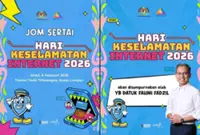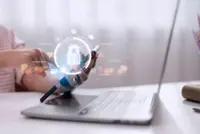JOHANNESBURG: Moss Marakalala was 11 when he first used a laptop at an after-school programme in Johannesburg, sparking an interest in technology that inspired him to provide young people like himself from South African townships with digital education.
Today, the 21-year-old runs a production company with his brother and tutors students from townships – deprived, urban areas formed under the apartheid government for people of colour – to become more tech-savvy and enhance their job prospects.





